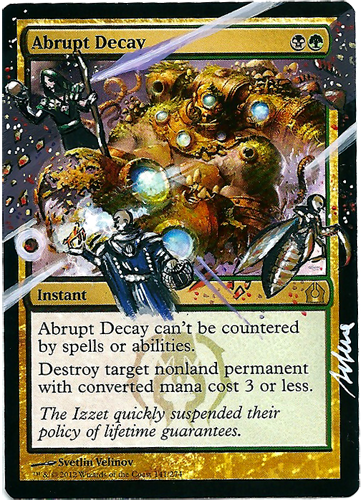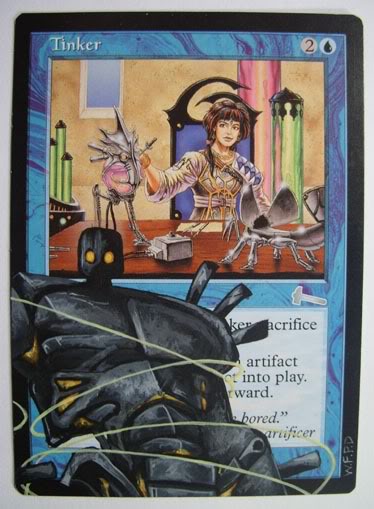Hi everyone! In this article we are going to analyze what players can and cannot do with notes during a Magic tournament.
To make things clear, let’s see all the cases. Please note how many they are!
1) During a match
Players CAN – Take notes and refer to them later into the same match, but each player’s note sheet must be empty at the start of the match and must remain visible throughout the match. Even if players are under no obligation to show or explain their notes to their opponents they are required to show those notes when requested from a judge.
A typical example regards note sheet that are given to players before a Grand Prix or sold by Magic vendors. They are composed of 3 columns, one for each game of a match, and players have to use a new sheet for each round.
Players CAN’T – Use notes provided by another player or taken during another match.
2) Between games
Players CAN – Refer to brief notes taken before the match (if a player takes too long looking at notes it may be penalized as Slow Play). If a player uses such kind of notes, he or she must remove them from the play area before the next game starts.
3) During the Draft
Players and Spectators CAN’T – take notes (with the exception of authorized press); furthermore, players can’t use notes during draft, pool registration and deck construction portions of a tournament.
4) At any time
Players CAN check for the Oracle text of a card. If a player wants to consult an Oracle text, he or she must ask to a judge for it. He or she may ask to the judge to consult the text in private (maybe because he or she needs information about a card his or her opponent hasn’t seen yet).
5) Artwork
Magic Tournament Rules
| 2.11 Artistic modifications to cards that indirectly provide minor strategic informations are acceptable. The Head Judge is the final arbiter on what cards and notes are acceptable for a tournament. |
These are two examples of Artworks that contain minor strategic informations:
 |
 |
Anyway we recommend to ask the Head Judge before the start of each tournament for authorization!
What if someone breaks the rules?
Let’s’ take a look at what the MIPG says about that.
Infraction Procedures Guide
|
3.2 Tournament Error — Outside AssistanceDefinition A player, spectator, or other tournament participant does any of the following:
|
These are two examples of Artworks that contain minor strategic informations:
The 3rd point is what we are looking for: if someone uses notes during a game, the resulting penalty provided by the MIPG would be a Match Loss. To avoid unfortunate scenarios we recommend to use brief notes only between games.
Electronic Devices
In this technological era, in which everyone can access to the internet anywhere and anytime, the use of electronic devices like smartphone, tablet, etc. is regulated in magic tournaments:
1. At Competitive and Professional REL tournaments, the use of electronic devices is NOT allowed for:
- Keeping track of life totals or other relevant informations for the game (poison counters, mana in pool, spell casted, etc.)
- Taking and consulting notes (following the rules listed above)
- Generating a random number when the game asks for one
Players can’t use electronic devices to gain information from outer sources (websites, forums, etc.) or to communicate with others in order to get outside assistance. Otherwise they will incur in a Tournament Error – Outside Assistance penalty1.
If a player wishes to privately consult his electronic device during a match to gather an information, he or she needs to first obtain the authorization from the Head Judge.
2. At Regular REL tournaments, electronic devices are permitted, but players may not use them to look for strategic advice or information about an opponent’s deck. Device use during a match other than brief personal calls must be visible to all players. If you wish to view information privately on electronic devices, due to its strategical value, you must request permission from a judge.
If needed, find here further information on what RELs are and what they imply. In any case, the Head Judge, as the final authority of a tournament, can restrict or deny players from using electronic devices during matches.
Footnotes
1. Electronic devices with no memory nor communication capabilities, such as the basic Boogie Board, are allowed as far as they are wiped between rounds.
